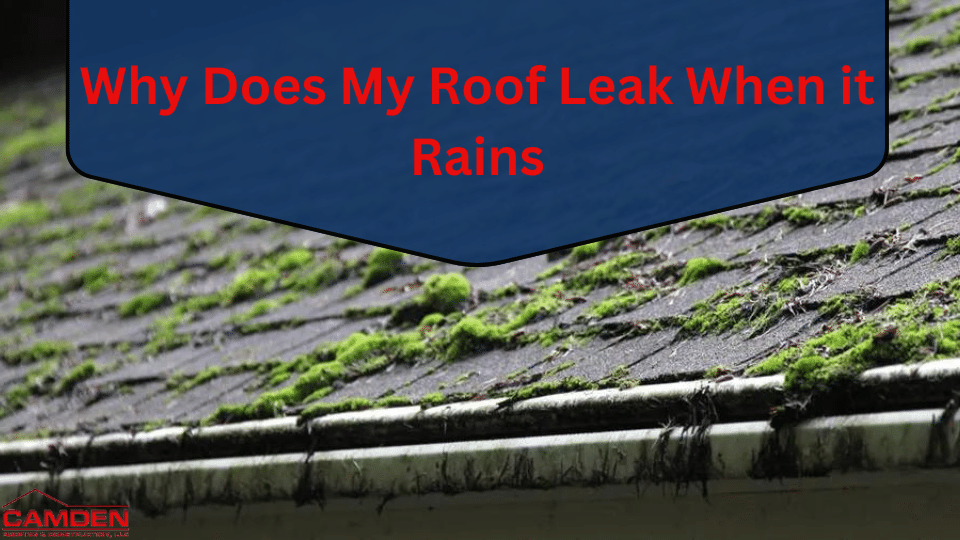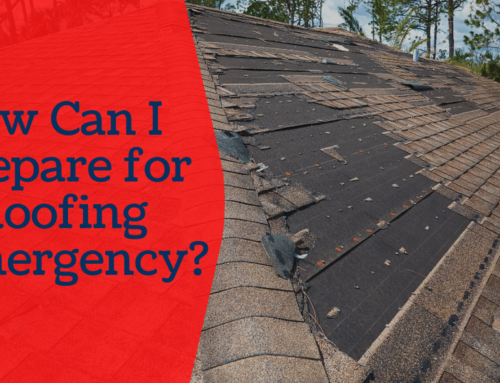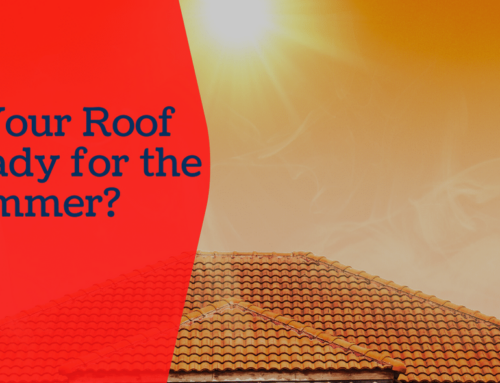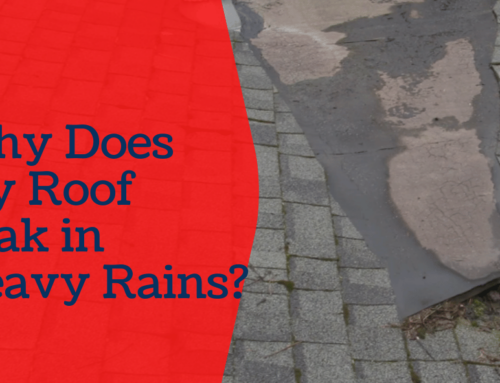If you’re wondering, “Why does my roof leak when it rains?” Let Camden Roofing & Exteriors help you out. When it rains heavily, even a roof that has never leaked before may seep inside. A leaking roof is a serious problem that you must fix immediately, no matter the time of the year or location.
Here, we will show you everything you need to stop and solve the roof leaks.
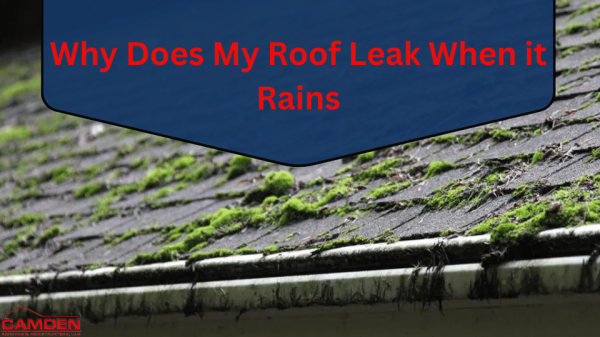
How to Stop a Leaking Roof During a Storm
Leaking during a storm is an annoying and worrying problem. Here are some actions to contain the damage.
- Use containers like buckets or bowls to collect leaking water to prevent injury or further damage.
- Can you reach the attic or crawl space? If so, mark the spot where you detected the leak. After the area is dry, you can use a patching substance, such as caulk or putty.
If you have an attic or crawl space, inspect it for leak indicators. Water will drip or stream down the underside of the roof during heavy rain. So, check for water damage and mildew. Both can be indicators of leaks, even when it is not raining. Also, you may see water stains on your ceiling if the leak is extended or has persisted.
Call the professionals at Camden Roofing & Construction in North Carolina if you do not have access to your attic or are not comfortable working there. As licensed roofers, we are experts at locating and fixing water damage.
What Causes the Most Roof Leaks?
Many things can cause roof leaks, including missing or broken shingles, rusted metal fasteners, damaged flashing, and poor seals.
Most roofs are asphalt shingle roofs. These shingles have a lifespan of 20-25 years at most, depending on the quality. They can dry out, crack, curl, and lift with time. If a storm with heavy winds occurs, water can sneak beneath the shingles, taking advantage of these failures. Therefore, check for missing shingles, wind damage, and other signs of storm damage on your roof.
Besides, metal flashing and fasteners can cause leaks. Water leaks might occur if they break or corrode. Chimneys, roof vents, and skylights on asphalt shingle roofs have flashing to prevent leaks. Water can enter the house if the flashing is damaged or has cracks. Without regular inspection and maintenance, metal roofs can split or become loose. Corrosion at the fasteners is another typical problem that can lead to water seepage.
Where Do Leaks Most Commonly Occur on a Roof?
- Skylights
Water often penetrates a building’s ceiling through the skylight. Water will filter in during a rainstorm if the opening is even slightly cracked. Did your roofer not correctly seal the flashing and the frame around the skylight? Here, even the most securely installed skylight will leak.
- Chimney
Leaks can also occur at the chimney. Flashing, or metal sheeting, is double-lapped to seal the space between the chimney and the roof. Then, your roofer will use urethane caulk to finish the job. However, this caulk eventually deteriorates, allowing water to seep beneath the shingles.
- Roof Vents
Similarly, if the caulk around your roof vents is old or failing, water can seep in via the cracks and fissures.
- Flat Roof Leaks
Water can pool on flat rooftops during rainy periods if the drainage system is inadequate. Water may pool or flow down the walls. Moreover, commercial building owners who maintain the roof’s seal, eaves, flashing, and drain can avoid flat roof leaks.
What Happens If I Do Not Repair a Roof Leak?
A little roof leak can quickly escalate into a considerable issue if you ignore it. The water can ruin the rafters in your ceiling and the framing in your walls, requiring expensive repairs.
Any possessions in your attic might suffer damage if water leaks in. Do you have valuable valuables stashed in the attic? Finding them deteriorated by water may be disheartening. Likewise, mildew and mold growth from a leaking roof can aggravate respiratory conditions and generate allergy attacks.
Moreover, a leaking roof increases the risk of a fire in the home. A leak might start a fire because of all the electrical wires and equipment in an attic.
Detecting and repairing a roof leak is not an easy task. Indeed, only experienced roofers can spot some not-clear leak sources. Thus, if you live in North Carolina and have roofing concerns, your best choice is to call the Camden Roofing & Construction team.
For more information, contact Camden Roofing & Construction, LLC in Charlotte and Raleigh, NC, at 919-729-5050.
